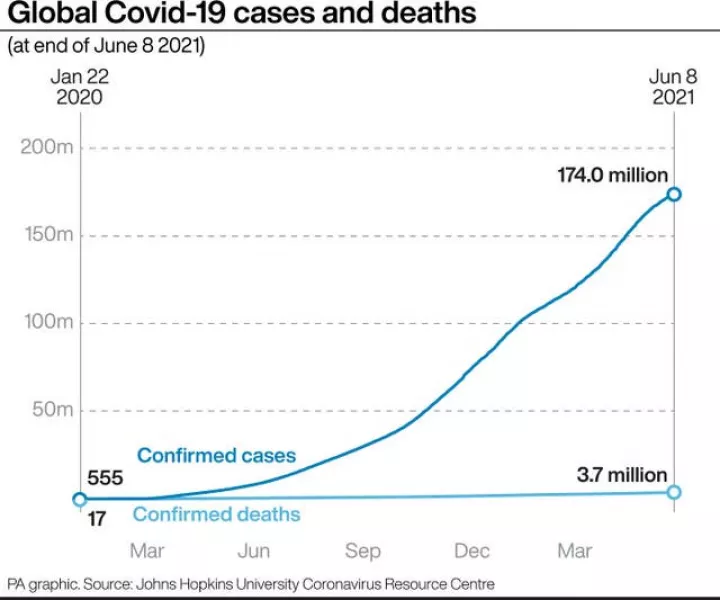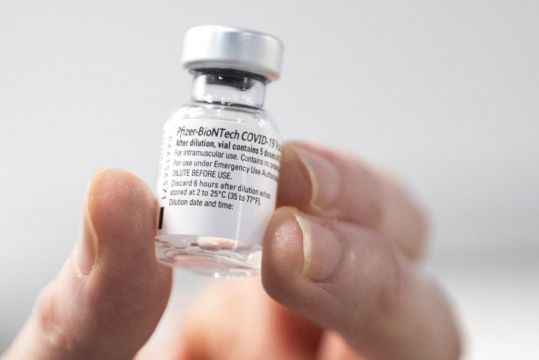The US will buy 500 million more doses of the Pfizer Covid-19 vaccine to share through the global Covax alliance for donation to 92 lower income countries and the African Union over the next year, reports say.
President Joe Biden was set to make the announcement on Thursday in a speech before the start of the Group of Seven summit.
Two hundred million doses — enough to fully protect 100 million people — would be shared this year, with the balance to be donated in the first half of 2022, sources said.

National security adviser Jake Sullivan told reporters on Wednesday that Mr Biden was committed to sharing vaccines because it was in the public health and strategic interests of the US.
As Mr Biden embarks on his first foreign trip, he is aiming to show “that democracies are the countries that can best deliver solutions for people everywhere,” Mr Sullivan said.
“As he said in his joint session (address), we were the ‘arsenal of democracy’ in World War Two,” Mr Sullivan said. “We’re going to be the ‘arsenal of vaccines’ over this next period to help end the pandemic.”

The news of the Pfizer sharing plan was confirmed to The Associated Press by a person familiar with the matter, who spoke on condition of anonymity ahead of the president’s formal announcement. The news was first reported by the Washington Post.
The US has faced mounting pressure to outline its global vaccine sharing plan. Inequities in supply around the world have become more pronounced, and the demand for shots in the US — where nearly 64% of adults have received at least one dose — has dropped.
The announcement comes a week after the White House unveiled its plans to donate an initial allotment of 25 million doses of surplus vaccine overseas, mostly through the United Nations-backed Covax programme, promising infusions for South and Central America, Asia, Africa and others at a time of glaring shortages abroad.
Overall, the White House has announced plans to share 80 million doses globally by the end of June, most through Covax. Officials say a quarter of the nation’s excess will be kept in reserve for emergencies and for the US to share directly with allies and partners.
The White House has also directed doses to allies including South Korea, Taiwan and Ukraine.







